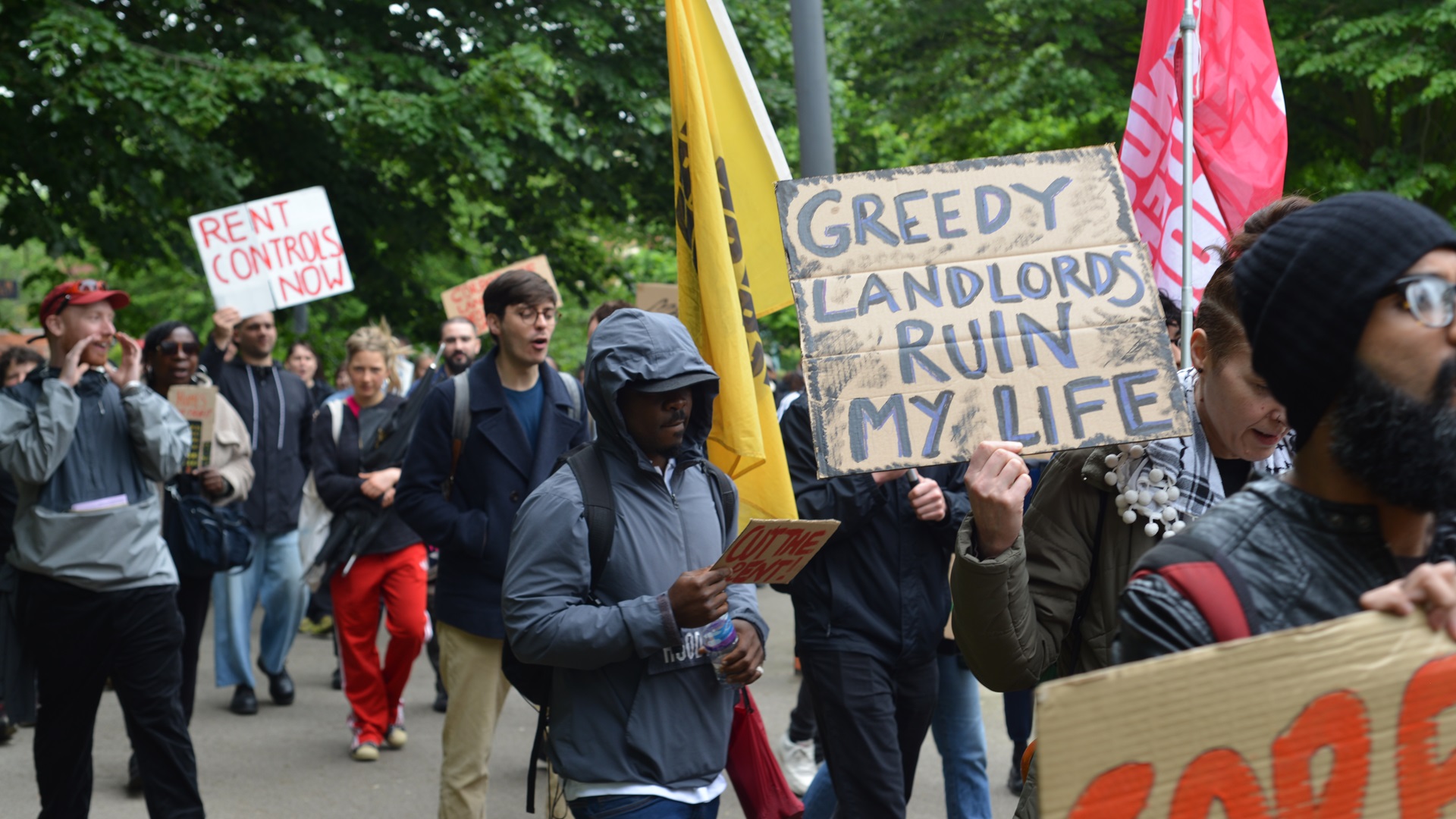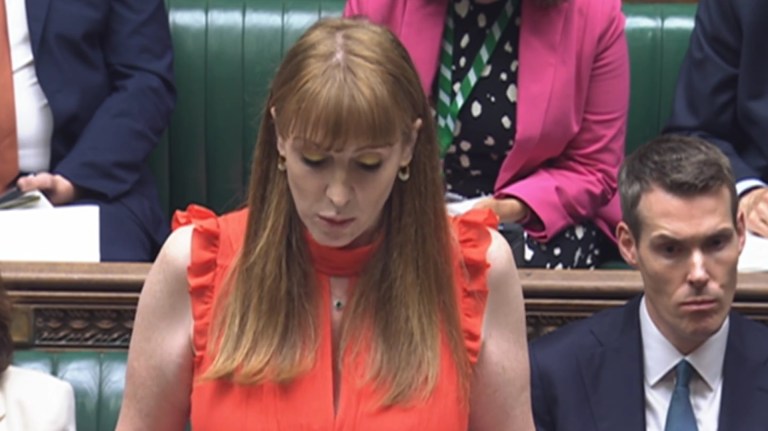“Now this government must stand firm behind their promises and not bow to pressure from the landlord lobby. I will continue to scrutinise and champion this issue as the bill begins its latest, long-awaited passage through parliament.”
Here’s everything you need to know about the Renters’ Rights Bill.
What is the Renters’ Rights Bill?
The Renters’ Rights Bill was revealed at July’s King’s Speech and was introduced to the House of Commons on 11 September 2024.
The legislation is building on the Conservatives’ Renters Reform Bill as well as Labour’s promise on the campaign trail to ban no-fault evictions immediately when in power.
Labour said the bill will remove the threat of arbitrary evictions and increase tenant security and stability as well as creating clear and expanded possession ground for landlords to reclaim properties when needed.
Tenants will also be given stronger rights and protections in the bill, including powers to challenge rent increases, the right to keep a pet and end bidding wars for properties.
The bill will also aim to boost the standard of private rented sector homes by introducing a Decent Home Standard and extended Awaab’s Law, which currently requires social housing landlords to fix hazards in strict timeframes.
A digital private rented sector database will give landlords, tenants and councils more information while a new ombudsman service will be available to settle disputes. Local authorities will also get new enforcement powers to take on rogue landlords.
The new law is also set to make it illegal for landlords to discriminate against tenants on benefits or with children.
The Renters’ Rights Bill will extend to England and Wales but apply to England. Housing matters in Scotland are devolved and no-fault evictions have already been abolished in the country.
Polly Neate, chief executive of Shelter, said the new legislation will “restore hope to England’s 11 million renters, whose lives have been plagued by no fault evictions for decades”.
The Conservative government first promised it would scrap no-fault evictions back in 2019 when Theresa May was prime minister.
That became a pledge in Boris Johnson’s successful 2019 manifesto but neither he nor successors Liz Truss or Rishi Sunak were able to deliver.
The legislation to scrap no-fault evictions – the Renters Reform Bill – was revealed in June 2022 but wasn’t debated by MPs for another year.
It proved controversial with Conservative backbenchers and Tory ministers faced accusations of “betraying renters” after revealing that no-fault evictions would not be banned when the bill made it into law but only after unspecified court reforms.
The bill managed to clear the House of Commons but its passage through the Lords ended when Sunak called for a summer election and the Tories were booted out of power.
Why is the Renters’ Rights Bill needed?
There is widespread agreement among tenants, politicians, pro-renter organisations, housing experts and landlord representative groups that the private rented sector is in urgent need of reform.
Rents have surged to record highs in recent years with average UK private rents increasing by 8.6% in the 12 months to June 2024, according to the Office for National Statistics (ONS).
The rate at which rents have been rising has started to slow in the last few months, suggesting prices are pushing the limit of what tenants can afford.
Average rents in England are now £1,310 a month, £743 in Wales and £959 in Scotland, the ONS said.
The combination of high prices and a lack of security for tenants is leading to more renters being left at risk of homelessness.
Almost a quarter of the households that were supported by English local authorities due to homelessness at the start of 2024 were facing eviction from a private rented property, analysis from the National Audit Office found.
Almost 200,000 private renters told the English Housing Survey they had experienced homelessness in recent years.
Matt Downie, Crisis chief executive, said: “The Renters’ Rights Bill offers a real glimmer of hope in a world that has long felt stacked against renters, and will provide tenants with long-overdue security and protection against homelessness.
“But there is still work to be done. We need stronger action from government to ensure people can afford their rents, and for the bill to be passed quickly to stop a rush on renters being served an eviction notice over the coming months. For now, we’re delighted to finally see some good news for renters.”
The English Housing Survey also shows that the private rented sector is most likely to have the oldest and more hazardous properties.
Almost a third of private rented dwellings were constructed before 1919 compared with 20% of owner-occupied homes and 7% of social rented homes.
Meanwhile, 21% of private rented properties are classed as non-decent – higher than 14% of owner occupied homes and 10% of social rents. Private rents are also more likely to have the most serious issues with 579,000 homes reporting a category one hazard. That’s around 12% of private rents compared with just 4% of social rented properties.
Renters are also more likely to fall into financial difficulty than homeowners, according to debt charity StepChange.
“The majority of people we see seeking help with problem debt live in the private rented sector, so it’s a sector that desperately needs reform,” said Richard Lane, chief client officer at StepChange.
“Our research shows that many tenants’ financial situations are becoming increasingly precarious – one in three private renters has used credit to afford their rent in the past year, while one in two private renters is finding it difficult to keep up with bills and credit commitments. To protect renters from eviction when they fall on hard times, we need to ensure that financial difficulties don’t leave tenants at risk of losing their homes.”
A shortage of social housing across England has driven many people into the private rented sector as has unaffordable house prices.
There is a mismatch in supply and demand with 120,000 homes needed in the UK private rented sector to bring annual rent rises down to an average of 2%, according to analysis from Rightmove.
The landlord lobby group National Residential Landlord Association has said there is an average of 15 households chasing every available home to rent.
The group has long-warned of an exodus of landlords from the sector in the wake of tax changes and upcoming legislation. But this claim has been questioned by pro-renter groups who say there is little evidence of landlords making a mass exit.
However, there is widespread agreement that reforms are needed and the long-term solution to a more sustainable private rented sector lies in building more social rent homes.
Will the Renters’ Rights Bill ban no-fault evictions?
The Renters’ Rights Bill’s headline feature is the long-awaited ban of section 21 ‘no-fault’ evictions. The Labour legislation promises to bring the ban into force for new and existing properties as soon as it comes into force.
No-fault evictions allow landlords to evict tenants without giving a reason and have long been considered a leading driver of homelessness.
It’s been five years since the Conservatives promised to ban no-fault evictions. Since then, there have been four prime ministers.
In that time, 109,538 households in England have been threatened with a section 21 notice, according to Ministry of Justice statistics, while 26,000 households needed support from councils to avoid homelessness after a no-fault eviction in the last year alone.
But, barring a political disaster, Keir Starmer should be the prime minister that finally delivers on the promise to give renters more security.
When will the Renters’ Rights Bill become law?
There is currently no set date for the Renters’ Rights Bill to become law.
Like any piece of legislation, the Renters’ Rights Bill must undergo five stages of scrutiny by MPs and peers in the House of Commons and the House of Lords before making it into law.
Labour have promised to abolish no-fault evictions immediately but the party will have to pass the bill first. That journey has now begun after the bill was introduced to parliament on 11 September.
The previous government said that court reforms were needed before the new legislation came into force.
Oli Sherlock, managing director of Insurance at Goodlord, said: “We must unclog the court backlog. The legal system is fraying at the seams and cannot cope even with current level of claims. There’s no value in scrapping section 21 if the court system can’t handle the influx of demand it will inevitably unlock. We need a plan, with timelines, on how the legal system will cope.”
Will the Renters’ Rights Bill let tenants keep pets?
For many renters, the right to keep a pet is often denied by their landlord – the Renters’ Rights Bill is set to change that.
Under the new laws, tenants are set to have the right to request a pet, which landlords must consider and cannot unreasonably refuse.
However, landlords will be able to request insurance to cover potential damage from pets if needed.
Do you have a story to tell or opinions to share about this? Get in touch and tell us more. Big Issue exists to give homeless and marginalised people the opportunity to earn an income. To support our work buy a copy of the magazine or get the app from the App Store or Google Play.









